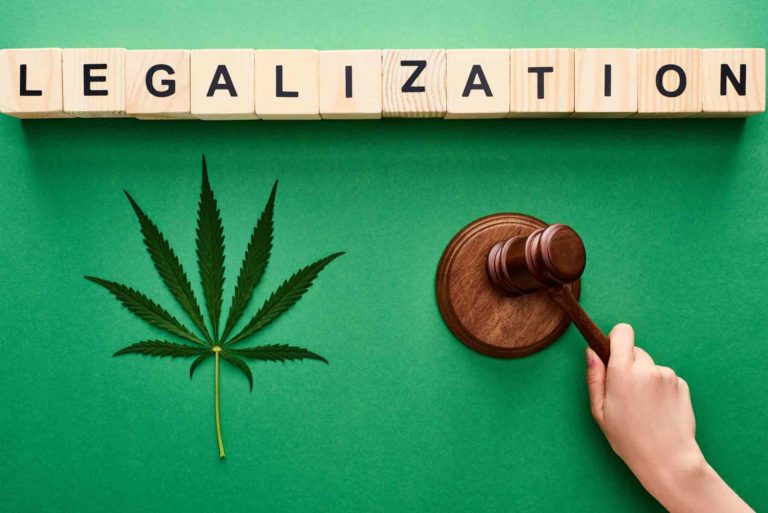
New York State officials finalized a deal on Thursday, March 25, to legalize recreational cannabis. This historic move will likely create tens of thousands of jobs and become one of the largest markets in the country. Cannabis legalization has paved the way for a projected 4.2 billion dollar industry.
Following several failed attempts, lawmakers struck an agreement with Gov. Andrew Cuomo to legalize cannabis for adults 21 and older. Officials hope with this move it will aid in ending years of racially disproportionate policing that saw people of color arrested far more often on low-level cannabis charges.
When Will it Take Effect?
According to the New York Times, the bill will create a cannabis delivery program. Users will also be able to consume cannabis in club-like lounges. This would also allow a person to cultivate up to six cannabis plants at home for personal use.
The first legal sale of cannabis is likely more than a year away. As officials must write the rules that will control the highly-regulated market. This includes the regulation of wholesalers and dispensaries, allocation of cultivating and retail licenses, creation of new taxes, and a five-member control board that would oversee the industry.
It is no secret that the decades-long war on drugs has disproportionately affected minority groups. The focus for this bill is to make amends in communities impacted the most by the war on drugs. Millions of dollars in tax revenue from cannabis sales will return to minority communities each year. And a portion of business licenses are specifically reserved for minority business owners.
Probable Expectations
“A percentage of revenue that is raised will get invested into the communities where the people who suffered mass incarceration come from and still live in many cases,” said Assemblywoman Crystal D. Peoples-Stokes, a Democrat who has spearheaded the legalization effort in the lower chamber for years. “For me this is a lot more than about raising revenue: It’s about investing in the lives of the people that have been damaged.”
The governor’s office had estimated that legalizing cannabis could generate about $350 million in yearly tax revenue. It could take years for New Yorkers to see the legalization plan become completely integrated.
New York will be one of the dozens of states that have legalized recreational cannabis. Lawmakers wanted to create their proposal on the best practices from other states. In hopes to make New York’s program a national model. According to people familiar with the negotiations, a bill could pass the Senate as soon as next week. It must go through proper legal measures first.
Senator Liz Krueger said after the bill is finally voted on and signed, that New York will be able to say that it has begun to undo damaging criminal justice laws. Those laws, “Accomplished nothing but ruin people’s lives.”
Road to Legalization
The year began with Democrats optimistically hoping they would reach an agreement for cannabis legalization. The pressure was already on New York after New Jersey recently legalized cannabis. But the push to legalize recreational cannabis often found momentum stalled by political disagreements.
The push received an unexpected boost from Governor Cuomo’s recent political scandals. The sexual harassment accusations along with the scrutiny over Mr. Cuomo’s mishandling of nursing homes during the pandemic led cannabis legalization to become a higher priority for Mr. Cuomo.
Nearly 60 percent of New York voters favor legalizing recreational cannabis, according to a poll from March.
Originally, the cannabis proposal was being negotiated as part of the state budget, due in April. But lawmakers now say it will be fast-tracked to be voted on as a stand-alone piece of legislation.
Governor Cuomo is known for his strong-armed negotiating tactics. He usually wields large influence during budget negotiations. But as members of his party called for his resignation, lawmakers found themselves with newfound leverage. They took the opportunity to press for their demands and negotiate a deal that closely mirrored their existing legislation. To their surprise, the governor was willing to make multiple concessions to reach an agreement.
Current Deal
40 percent of tax revenues will return to communities disproportionately affected by the war on drugs. Another 40 percent will go towards public education. The remaining 20 percent would go towards drug treatment, prevention, and education.
The retail sale of marijuana would be subject to a nine percent state tax and four percent local tax. Also included in the deal are equity programs. They would provide loans, grants, and incubator programs for small farmers and people from disproportionately impacted communities who want to enter the industry.
One of the goals for this legislation is for half of the business licenses to go to equity applications. These applications would include disabled veterans, minority-and-women-owned businesses, and people who have relatives with a marijuana conviction.
It would also eliminate penalties for the possession of fewer than three ounces of cannabis. The proposal will automatically expunge records for people with convictions for activities no longer criminalized.
Another goal is to improve the state’s medical cannabis program. The proposal would expand the list of medical conditions covered. It would also allow patients to smoke or vape medical cannabis and received a 60-day supply instead of the current 30-day limit.
Finally, patients can grow medical marijuana at home six months after the bill begins. Those cultivating recreational cannabis must wait longer. After the opening of the first dispensary, people would have to wait 18 months. This would give the regulated market time to develop.
While there is still quite a bit to work out, this marks a huge step forward for the country as a whole. Success in New York may pave the way for other major states to follow suit.
Make sure to check back for more cannabis and hemp related news.